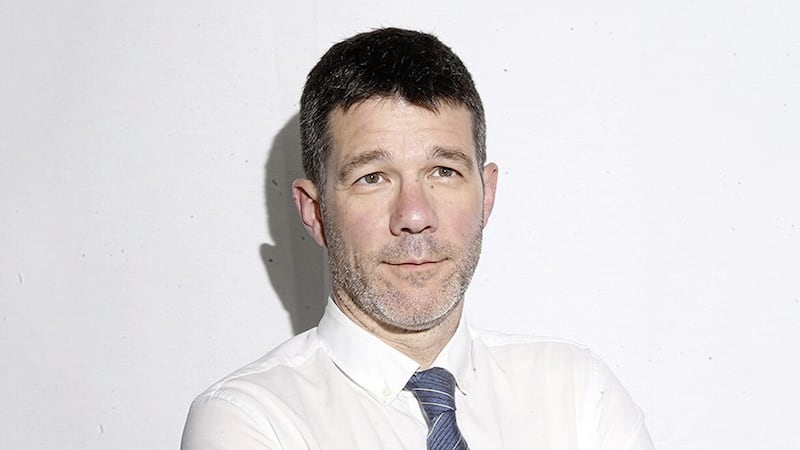Civil servants and public bodies are being put through a pantomime of having to identify dramatic cuts that will almost certainly never be made.
Stormont’s Department for Communities is the latest to publish proposals, including closing benefit offices one additional day per week. The proposals are now out for public consultation on their equality impact, a legal process that runs until the end of July. By the time responses are written up it will be Autumn, when the Treasury cheque will have arrived – or at least clearly be in the post – to cover the DUP’s return to work.
“It’s in front of you!” the pantomime audience might cry.
This fake crisis will still cause real damage through short-term penny pinching and the long-term effects of another year without proper planning. There are real budget problems at Stormont, above and beyond a punishment budget to pressurise the DUP. But the government’s true agenda is to have these problems addressed through public sector reform and revenue-raising in Northern Ireland, in return for a rescue cheque. That will be the budget argument if and when devolution returns.
**
Campaigners for the A5 are asking Dublin to put some of its enormous budget surplus towards the £1.6 billion dual carriageway.
In 2007, the Irish government pledged £400 million, half the project’s estimated cost at the time. This remains the only serious spending commitment the Republic has ever made in Northern Ireland and it was no vague promise – the decision was made through the North-South Ministerial Council, written into Stormont’s programme for government and understood very much as a prize of the St Andrews Agreement.
None of that stopped Dublin unilaterally cancelling its contribution in 2011, citing the financial crash, a justification long since expired.
The young transport minister who withdrew the funds, months into his first cabinet job, was Leo Varadkar. Whatever became of him?
**
Council elections in England may have produced the best possible outcome for restoring Stormont.
The Conservatives had a disaster, so will want to defer a general election until late next year. A spring vote, as had been rumoured, would have snapped Northern Ireland parties straight back into campaign mode after next week's council elections here.
Labour managed only a qualified success, so Rishi Sunak is not damaged enough for any Tory plot against him to be plausible and unionist Brexiteers will not be tempted to hold out for a more favourable prime minister. Nor is a Labour government so inevitable or imminent that anyone will be tempted to stall until it takes power.
The prospect of a hung parliament is being discussed but the DUP would be foolish to count on that, especially after last time.
**
Rishi Sunak feels emboldened enough against his own Brexiteers to have ditched their cherished bonfire of EU regulations. This should mean a shallower sea border – unless it really does provoke a Tory revolt.
The prime minister has also reportedly agreed to “not for EU” labelling throughout the UK, rather than just for British goods bound for Northern Ireland. This could significantly lower the sea border, smoothing the green lane and making Northern Ireland custom worthwhile again for small British suppliers.
Businesses urgently want more information on how all this is supposed to work but there was a striking vote of confidence in the Windsor Framework before any of it was even announced. Stena Line has commissioned two new ships for the Belfast-Heysham freight route, increasing its capacity by 80 per cent.
**
Television broadcasters and streamers in the EU must show a 30 per cent minimum quota of ‘European works’. The EU is considering stripping UK-made television and film of European classification by 2026.
This possibility has long haunted the film and TV industry in Northern Ireland. The morning after the EU referendum, Arlene Foster and Martin McGuinness opened a new television studio in Belfast, where the dismayed owner warned he might have to move to Dundalk.
The likeliest outcome is that the EU will not change the rules. Its case is weak, not least because ‘European works’ are defined by the separate Council of Europe. However, the impact of any change could be dramatic, for good or ill. Much of our TV industry might be lost to the Republic, or a major chunk of Britain's industry might relocate here if we were made a special case. Alas, there is no mention of film and television in the Windsor Framework.
**
The DUP has complained to the Equality Commission after Newry, Mourne and Down District Council voted to create a “new Ireland working group” to consult on “constitutional change”.
Sinn Féin wanted to call it the Irish unity working group but accepted the less assertive title proposed by SDLP councillor Pete Byrne. This has led to all parties calling it the new Ireland forum, which is rather unfortunate, as that 1980s exercise became the sound of one hand clapping.
Byrne has told the Newry Reporter the DUP complaint is “disappointing” as “the forum is not about pushing one position or another on the constitutional issue”.
What is most remarkable about this statement is that it will have been made in all good faith.









